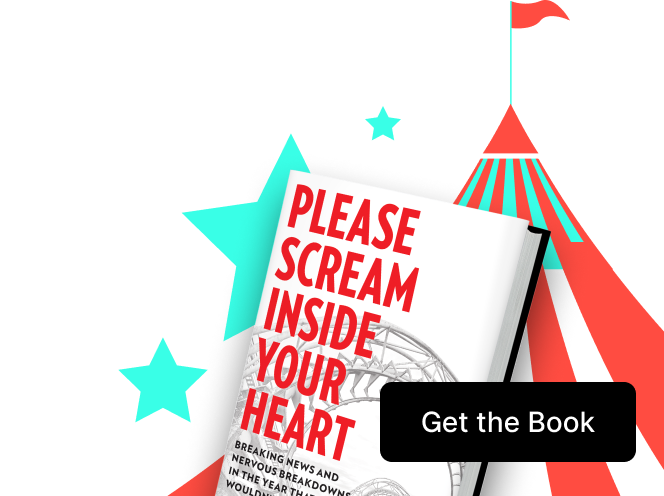I Read Alone
Twitter CEO Evan Williams recently tweeted, “The future of book reading is clearly collaborative.”
I’d have to agree that the future of reading should be collaborative. But only if you are under four years old. From then on, reading should be done alone.
Evan was reacting to the news that Kindle will now let you see if others have highlighted the same passage in a book and then aggregate those saved passages into a list of what they’re calling, Recently Heavily Highlighted Passages. Matthew Ingram provides an good overview of the new service along with this quote from Amazon.
We combine the highlights of all Kindle customers and identify the passages with the most highlights. The resulting Popular Highlights help readers to focus on passages that are meaningful to the greatest number of people. We show only passages where the highlights of at least three distinct customers overlap, and we do not show which customers made those highlights.
Wait, we’re all going to start reading together?
Don’t get me wrong. I’m happy to discuss a novel with a book club or listen to a critic give his take on NPR. But I don’t want that external information delivered at the time of my reading. That’s one of the few things I still do alone. Reading a book provides a unique, important (and yes, private) interaction between author and reader, between you and the art. I don’t want to go to bed and curl up with a good book only to find that I am being spooned by a few million folks I’ve never met.
This a different kind of privacy invasion. I really don’t care if the world knows which paragraphs I’m highlighting. I just don’t want to give up the privacy of being able to read a book without knowing what passages other people found worthy. I want to be alone with the author and I don’t want to turn the page and find you there. Isn’t it odd that the merit of that goal is even up for debate?
I’m also worried about this trend from the author’s perspective. Take it from a longtime website creator. It’s not always so pleasant to know which pieces of your content are attracting the most views and clicks from visitors. Authors get to blissfully exist in a world where they can assume all their readers are geniuses and are focused on the right parts of the work. Do writers really want the truth? Do they really want to be called into an editor’s office to find out their novel needs a few photos of cute cats doing funny things?
You can be certain that non-fiction publishers will scan those heavily highlighted passages and realize that we love lists. And fiction editors will realize, that, yes, Dan Brown’s use of all-caps led to more readers highlighting a particular section. Get ready for books that are entirely made of up of lists written in all-caps
If both you and the authors already know all most heavily highlighted passages, we ultimately run the risk of the twitterization of the book. Just show me the good stuff. I’ll take the Cliffs Notes version, but I want it even Cliffier than before.
Ultimately, this move towards collaborative reading is a bad direction for Amazon – and yes, they’ve added Twitter and Facebook integration as well. The Kindle is currently positioned as the purist’s choice when it comes to e-reading, while the iPad is a multi-purpose device – loaded with distractions – that happens to have a book application. Does Amazon really want to compete on bells and whistles with all-in-one Steve and his magical marching band?
Maybe I’m being a little ornery about this topic. Well, that’s my goal. I’m worried that if I’m too pleasant, you all may want to collaboratively read with me. For now, that role is being exclusively filled by my toddlers.
